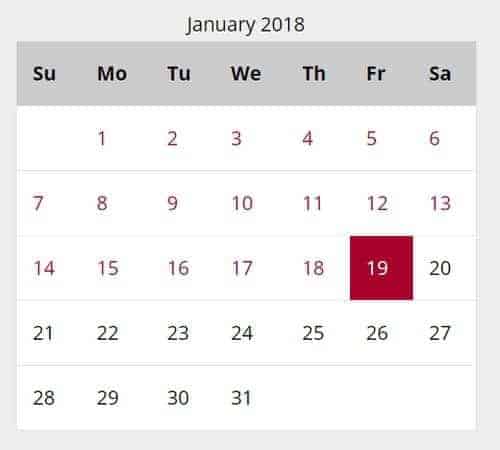How Can I Tell if a Mare is Pregnant?

Q. How can I tell if my mare is pregnant? –via e-mail
A. Veterinarians have a variety of techniques and tests available to help them determine if a mare is pregnant. The assessment of whether or not a mare is in foal is based on her normal physiological events that occur during the pregnancy. All methods of pregnancy diagnosis have some limitations and may be associated with either false positive or false negative results. Here, we’ll try to highlight some of the common approaches to determine if your mare is pregnant or not.
The majority of nonpregnant mares show signs of estrus in a predictable pattern. If a mare is bred and fails to return to estrus, this is a positive indication that she is pregnant. However, not all mares that fail to return to estrus are pregnant—experts estimate that 5-10% of pregnant mares still exhibit estruslike signs to a stallion.
The best test for pregnancy diagnosis is through transrectal ultrasonography. This provides the owner with the maximal amount of information about pregnancy status and whether or not any problems are associated with the pregnancy. Some advantages of ultrasound include:
- Early pregnancy diagnosis (as early as day 10 or 11 post-ovulation),
- Estimation of foaling dates, if breeding dates are unknown; and
- Visualization of fetus and its heart beat at 25 days or more in foal.
A few blood tests are available that allow you to determine if your mare is open or pregnant, some offering better results than others. Following maternal recognition of pregnancy at around Day 12-14 post-ovulation, progesterone should remain elevated in pregnant mares for the length of the pregnancy. However, not all mares with elevated progesterone following maternal recognition will be pregnant. As elevated progesterone is present in both open and pregnant mares, measuring progesterone concentrations in the blood has limited pregnancy diagnosis capabilities. Detection of a progesterone concentration of less than 1 ng/mL usually indicates an absence of a pregnancy.

Detection of equine chorionic gonadotropin (eCG) in the blood of a mare is a direct positive indicator of pregnancy. Levels of eCG in the blood rise starting around Day 35 and remain elevated until Day 100-140 of gestation. The eCG assay is reliable in determining if your mare is pregnant or open but only in the narrow period from days 35 to 100 post ovulation. For example, if a mare is around 200 days pregnant her eCG levels would be 0, and the interpretation of the test would be that she is not pregnant.
After Day 80 of gestation a normal rise in conjugated or total estrogens occurs. A blood sample can be evaluated for this rise in estrogens to determine if your mare is pregnant or open. Estrogen is being produced by the fetus and the placenta and can be used as a marker of fetal viability.
The use of one of these tests will allow you to accurately determine if your mare is pregnant. A transrectal ultrasound of your mares uterus will give you the most information earliest in the pregnancy regarding if she is pregnant, how many days approximately is she in foal, and if there are any problems with the pregnancy. A blood test performed by your veterinarian can also determine if your mare is pregnant.
If you know when your mare was bred you can appropriately select the eCG or total estrogens assays to determine the pregnancy status and viability of the pregnancy. If you don’t know when she could have been bred but are still suspecting she might be pregnant, you could submit both a blood sample for both total estrogens and eCG to increase your accuracy.
Written by:
Ryan Ferris, DVM, MS, Dipl. ACT
Related Articles
Stay on top of the most recent Horse Health news with















